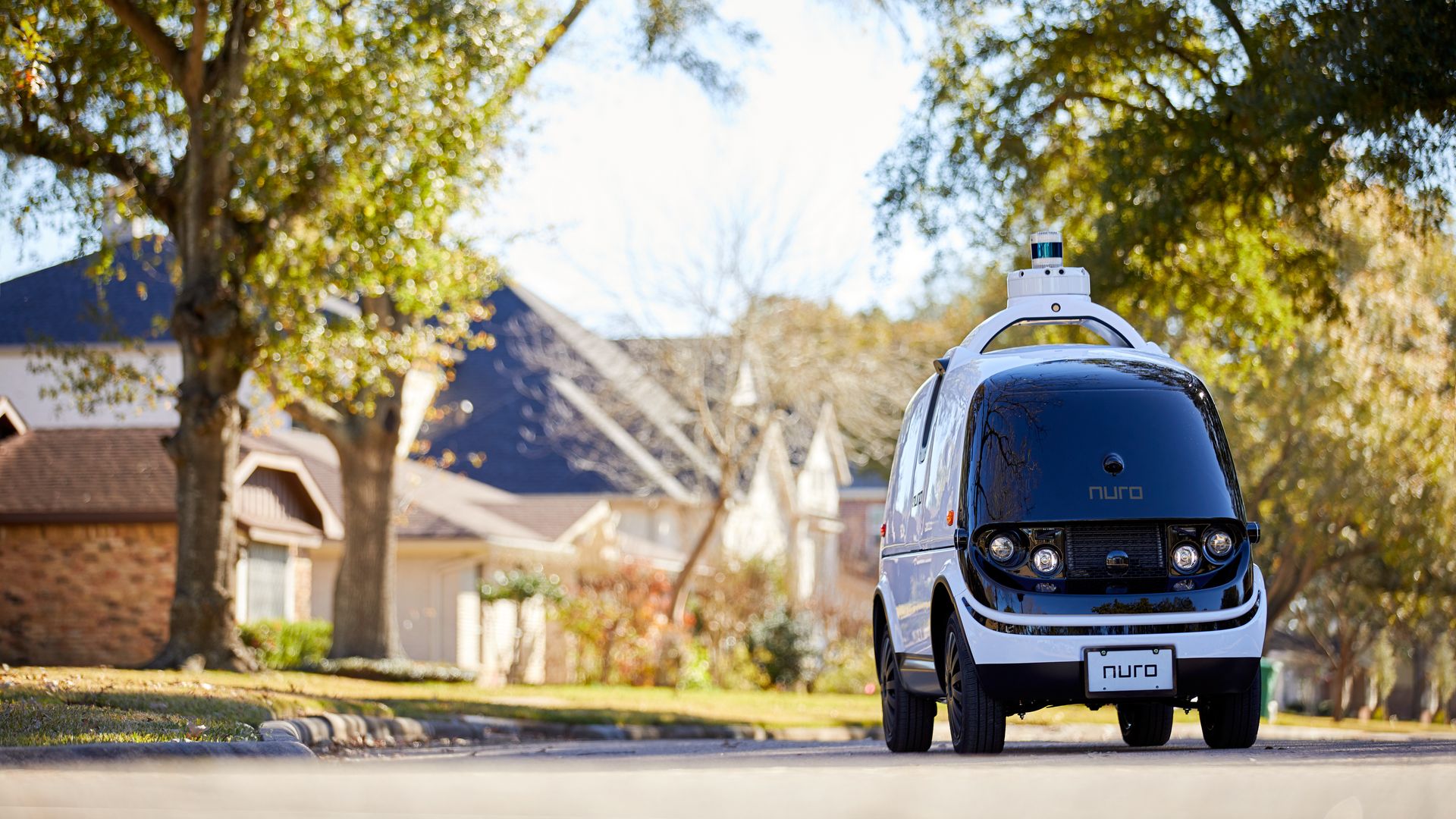Feds clear the way for Nuro's driverless deliveries
Add Axios as your preferred source to
see more of our stories on Google.

Nuro's second-generation delivery vehicle, R2. Photo courtesy of Nuro
The U.S. Transportation Department is giving its regulatory blessing to the first autonomous vehicle with no steering wheel, pedals or human occupant.
Why it matters: Vehicle safety standards were written for today's cars and trucks, mostly to protect humans riding inside them. By granting an exemption to Nuro's self-driving delivery vans, the National Highway Traffic Safety Administration is beginning to pave the way for the driverless era.
The big picture: Congress has yet to pass self-driving legislation and the Department of Transportation has so far issued only voluntary guidelines to companies developing the technology. Absent federal rules, many states permit testing of self-driving cars as long as they comply with existing vehicle safety standards.
What's happening: The exemption announced today allows Nuro to deploy its occupant-free R2 delivery vehicle without some familiar features.
- “Since this is a low-speed self-driving delivery vehicle, certain features that the department traditionally required – such as mirrors and windshield for vehicles carrying drivers – no longer make sense,” said U.S. Secretary of Transportation Elaine Chao.
- Instead, Nuro replaced the side and rearview mirrors with cameras and other sensors and rounded the vehicle body to take up less road space, making it safer for others nearby.
- They also did away with the usual windshield and replaced it with an energy-absorbing front panel to help protect pedestrians and cyclists.
- Under the federal exemption, Nuro doesn't have to worry about a driver-distraction rule requiring rearview cameras to shut off when the vehicle is moving forward. Instead, those cameras help see 360 degrees around the vehicle.
Yes, but: NHTSA is keeping a tight leash on the company as its deploys the vehicles as part of a delivery service for Kroger, Wal-Mart and Domino's Pizza starting in Houston. Among the conditions:
- Nuro may deploy no more than 5,000 R2s during the two-year exemption period and must supply the agency with real-time safety data.
- To ensure transparency, it must also meet regularly with NHTSA and do community outreach in neighborhoods where its vehicles are operating.
What to watch: Nuro said it hopes the testing will help the government write rules for a new category of low-speed self-driving vehicles.
